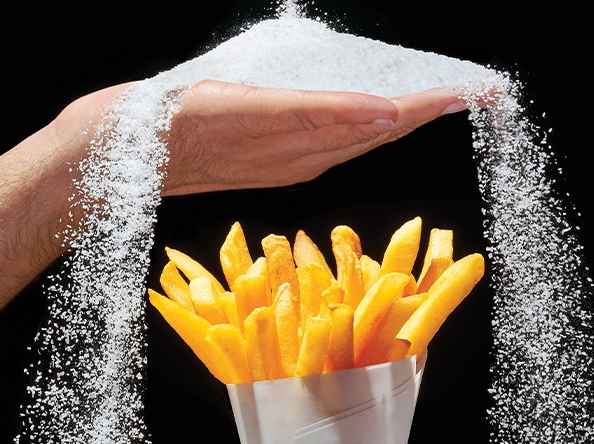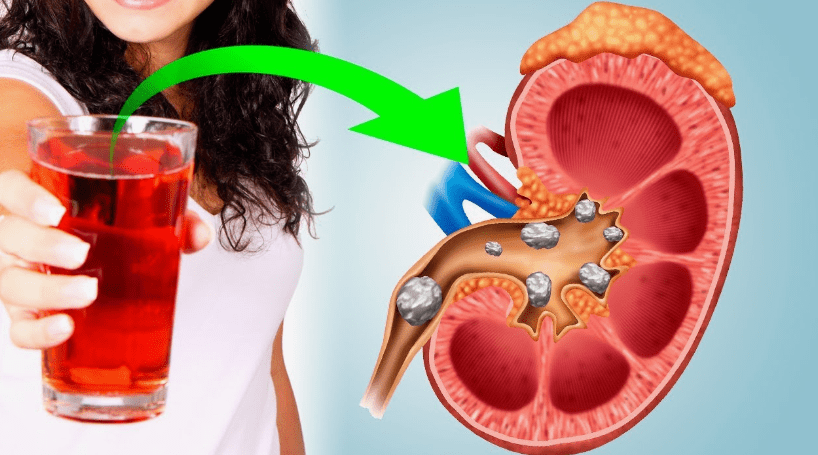Your kidneys work tirelessly to filter waste, balance fluids, and keep your body in harmony, but simple daily habits can make their job easier and support long-term health. Imagine starting each morning with small, intentional choices that nourish these vital organs, helping you feel energized and vibrant. By adopting kidney-friendly habits, you can promote wellness and reduce strain on your kidneys, even if you’re not facing health challenges. Let’s explore six evidence-based ways to kick off your day, backed by trusted sources like the Mayo Clinic and Harvard Health, to keep your kidneys thriving.

Why Kidney Health Matters
Your kidneys filter about 50 gallons of blood daily, remove toxins, regulate blood pressure, and maintain electrolyte balance, according to the CDC. Poor kidney function can lead to fatigue, swelling, or more serious issues over time. Starting your day with kidney-friendly habits supports these organs, especially for health-conscious Americans who want to prevent problems before they start. Small, consistent changes in your morning routine can make a big difference in kidney health and overall well-being.
Habit 1: Hydrate First Thing in the Morning

Drinking water upon waking helps your kidneys flush toxins and maintain fluid balance. A 2019 study in Journal of the American Society of Nephrology found that adequate hydration supports kidney function and may reduce the risk of kidney stones. Here’s how to make morning hydration kidney-friendly:
- Start with Water: Drink 8–12 ounces of plain water before coffee or tea to rehydrate after sleep.
- Add a Twist: Squeeze in a bit of lemon for flavor and a vitamin C boost, which may help prevent kidney stones, per WebMD.
- Avoid Sugary Drinks: Skip sodas or sweetened juices, which can strain kidneys over time, per Harvard Health.
Aim for 1–2 glasses of water first thing, and keep sipping throughout the day to reach 8–10 cups.
Habit 2: Eat a Kidney-Supportive Breakfast

A balanced breakfast low in sodium and processed foods sets a kidney-friendly tone for the day. According to the Mayo Clinic, a diet rich in whole foods supports kidney function by reducing blood pressure and inflammation. Try these breakfast ideas:
- Oatmeal with Berries: Oats are low in sodium, and berries provide antioxidants to fight inflammation.
- Greek Yogurt with Nuts: Unsweetened yogurt offers protein, and nuts like almonds add healthy fats without excess salt.
- Whole-Grain Toast with Avocado: Avocado provides potassium in moderation, supporting kidney balance, per the CDC.
- Limit Processed Meats: Avoid bacon or sausage, which are high in sodium and phosphorus, taxing kidneys.
Choose fresh, minimally processed ingredients to nourish your kidneys from the start. Share this breakfast tip with a friend who loves healthy mornings!
Habit 3: Move Your Body Gently

Morning exercise, even light movement, improves blood flow to your kidneys and helps manage blood pressure, a key factor in kidney health, per Harvard Health. A 2020 study in American Journal of Kidney Diseases linked regular physical activity to better kidney function. Here’s how to get moving:
- Take a Brisk Walk: Aim for 15–20 minutes of walking to boost circulation.
- Try Gentle Yoga: Poses like child’s pose or cat-cow stretch improve flexibility and reduce stress.
- Do Chair Exercises: If mobility is limited, try seated leg lifts or arm circles for low-impact movement.
- Stay Consistent: Aim for 150 minutes of moderate activity weekly, as recommended by the CDC.
Morning movement energizes you and supports your kidneys without overwhelming your routine.
Habit 4: Limit Morning Sodium Intake

High sodium intake can raise blood pressure, putting stress on your kidneys, according to the Mayo Clinic. Many breakfast foods, like cereals or packaged breads, are surprisingly high in sodium. Here’s how to keep it low:
- Read Labels: Choose cereals or breads with less than 140 mg of sodium per serving.
- Season Smart: Use herbs like basil or cinnamon instead of salt to flavor meals.
- Avoid Fast Food: Skip drive-thru breakfasts, which often exceed daily sodium limits.
- Cook at Home: Prepare eggs with fresh veggies instead of pre-seasoned mixes.
Starting your day with low-sodium choices helps your kidneys maintain healthy blood pressure.
Habit 5: Incorporate a Kidney-Friendly Beverage

Beyond water, certain morning drinks can support kidney health when chosen wisely. A 2018 study in Nutritional Epidemiology suggested that antioxidant-rich beverages may reduce oxidative stress on kidneys. Try these options:
- Green Tea: Its catechins may protect kidney cells, per WebMD. Stick to 1–2 cups to limit caffeine.
- Herbal Tea: Chamomile or hibiscus teas are caffeine-free and may lower blood pressure, per Harvard Health.
- Cranberry Juice: Unsweetened, diluted cranberry juice may help prevent urinary tract issues, which can affect kidneys, per the CDC.
- Avoid Excess Coffee: Limit to 1–2 cups, as high caffeine can raise blood pressure in some people.
Sip a kidney-friendly drink mid-morning to complement your water intake and add variety.
Habit 6: Practice Morning Mindfulness

Stress can raise blood pressure and strain kidneys over time, per Mayo Clinic. Starting your day with mindfulness, a practice that reduces cortisol, supports kidney health. A 2021 study in Journal of Psychosomatic Research found that mindfulness practices lowered stress-related inflammation. Try these morning techniques:
- Deep Breathing: Spend 5 minutes on slow, deep breaths to calm your nervous system.
- Gratitude Journaling: Write down 3 things you’re thankful for to set a positive tone.
- Guided Meditation: Use a free app for a 10-minute session focused on relaxation.
- Stretch Mindfully: Combine light stretching with focused breathing for a dual benefit.
A calm morning mindset supports your kidneys by keeping stress in check. Have a favorite way to relax? Comment below—we’d love to hear it!
Precautions for Kidney-Friendly Habits
These habits are generally safe, but consider these precautions, per WebMD and Mayo Clinic:
- Hydration Balance: Avoid overhydrating, which can strain kidneys in rare cases. Stick to 8–12 cups daily unless advised otherwise.
- Dietary Restrictions: If you have kidney issues, consult your doctor about potassium or phosphorus limits, as some foods (like avocados) are high in these.
- Exercise Safety: If you have health conditions, check with a doctor before starting new activities.
- Allergies: Test new foods or drinks, like herbal teas, in small amounts to avoid reactions.
Always consult your healthcare provider before making significant changes, especially if you have kidney concerns.
What to Expect After a Month of Kidney-Friendly Mornings
Adopting these habits for 30 days, alongside a balanced lifestyle, may bring subtle but meaningful changes. Based on studies and user experiences, you might notice:
- More energy from better hydration and nutrition.
- Less bloating or puffiness due to lower sodium intake.
- Improved mood and focus from mindfulness and exercise.
- A sense of empowerment from taking charge of your kidney health.
Results vary, but consistency is key to supporting your kidneys over time.
Why These Habits Fit Your Lifestyle
These kidney-friendly habits are perfect for busy, health-conscious Americans because they’re simple, affordable, and flexible. You don’t need special equipment or hours of free time—just a willingness to make small, intentional choices each morning. From sipping water to choosing fresh breakfast ingredients, these practices integrate seamlessly into your routine, offering long-term benefits without feeling overwhelming. Explore more health tips on our site to keep your wellness journey thriving!
Conclusion
Starting your day with kidney-friendly habits is a powerful way to support your body’s unsung heroes. From hydrating first thing to eating a low-sodium breakfast and practicing mindfulness, these six practices are backed by science and easy to adopt. Begin with one or two habits and build from there to create a morning routine that leaves you and your kidneys feeling their best. Share this article with a friend who wants to boost their health, and let’s keep the wellness going strong!
Disclaimer
This article is for informational purposes only and does not substitute professional medical advice. Consult your doctor before making health changes.